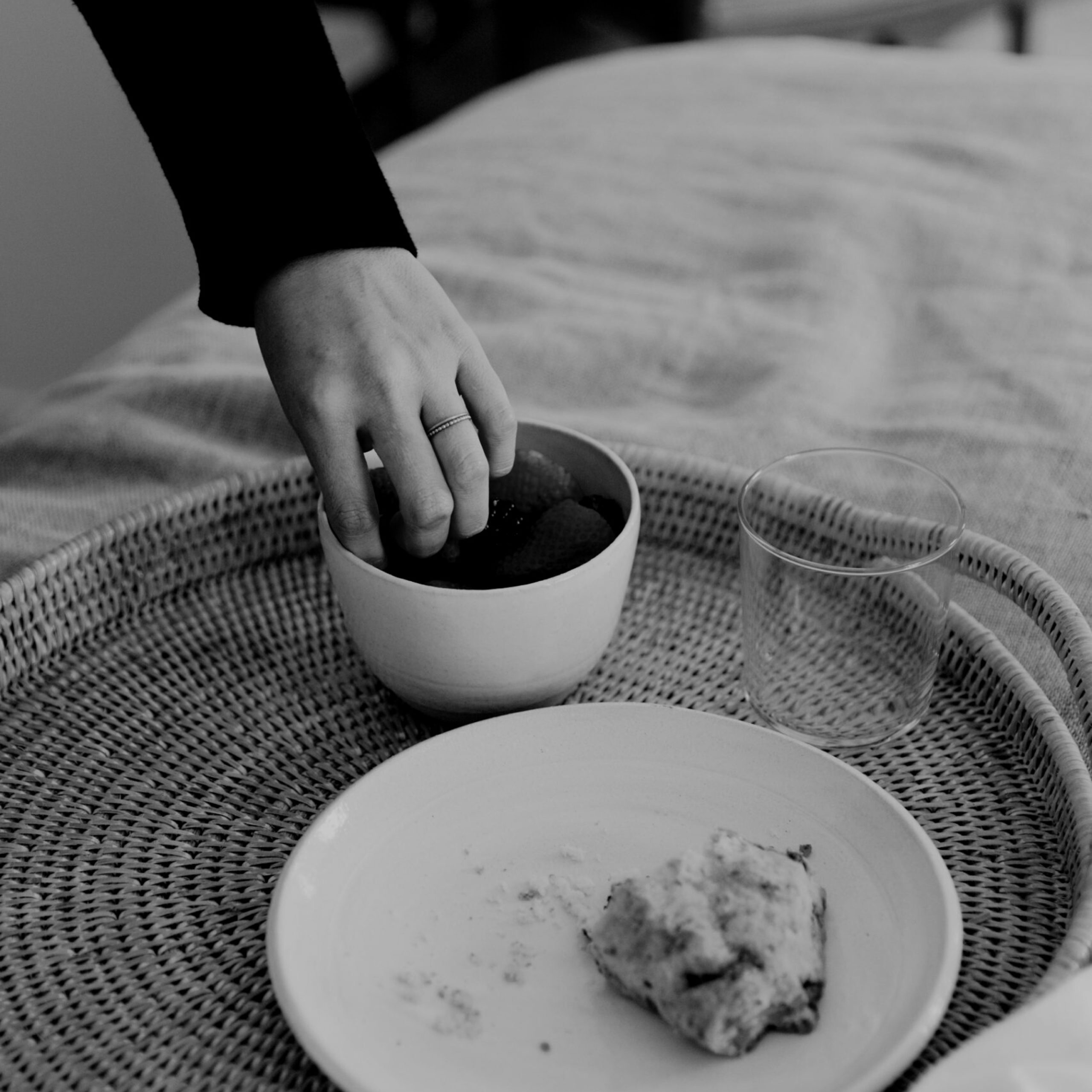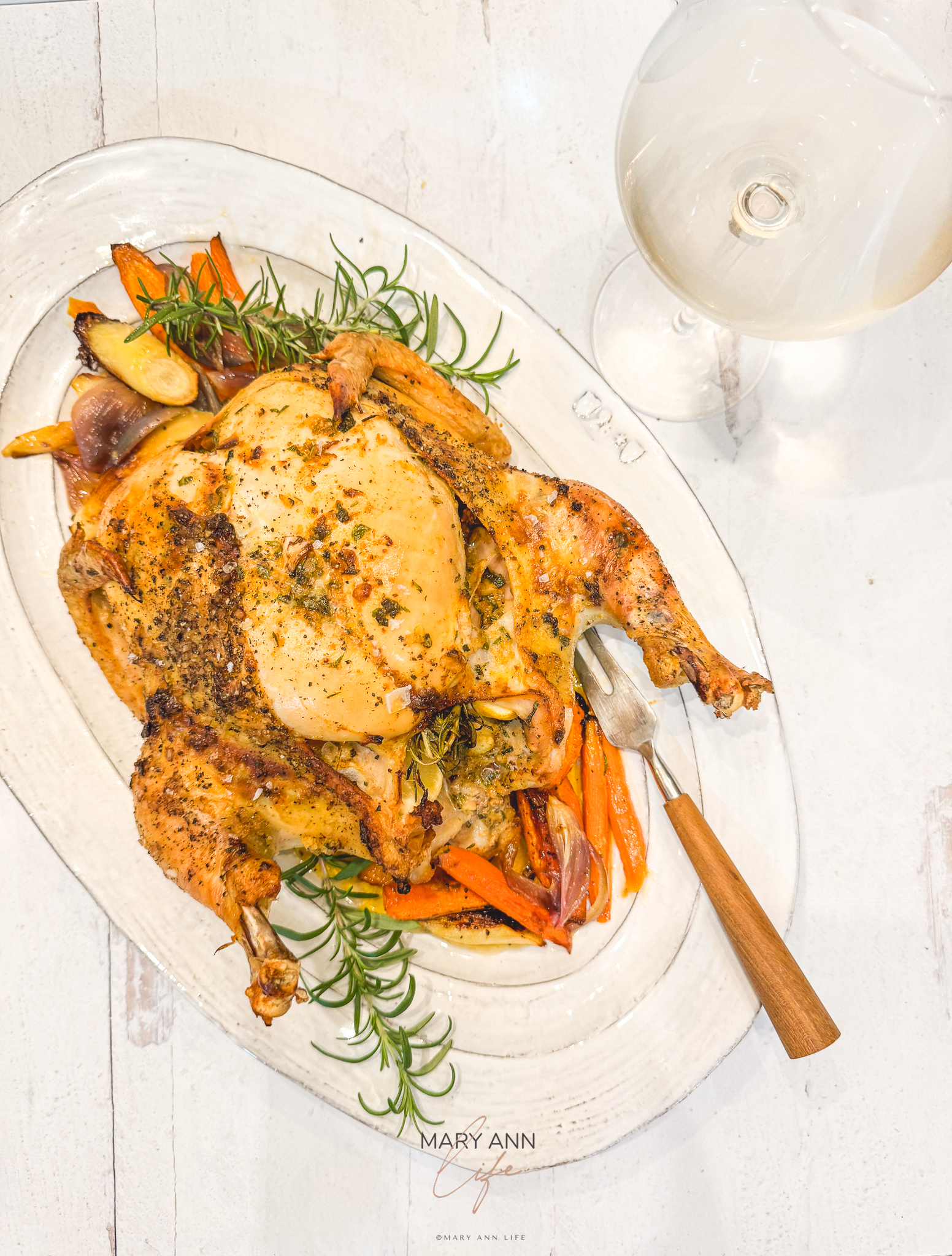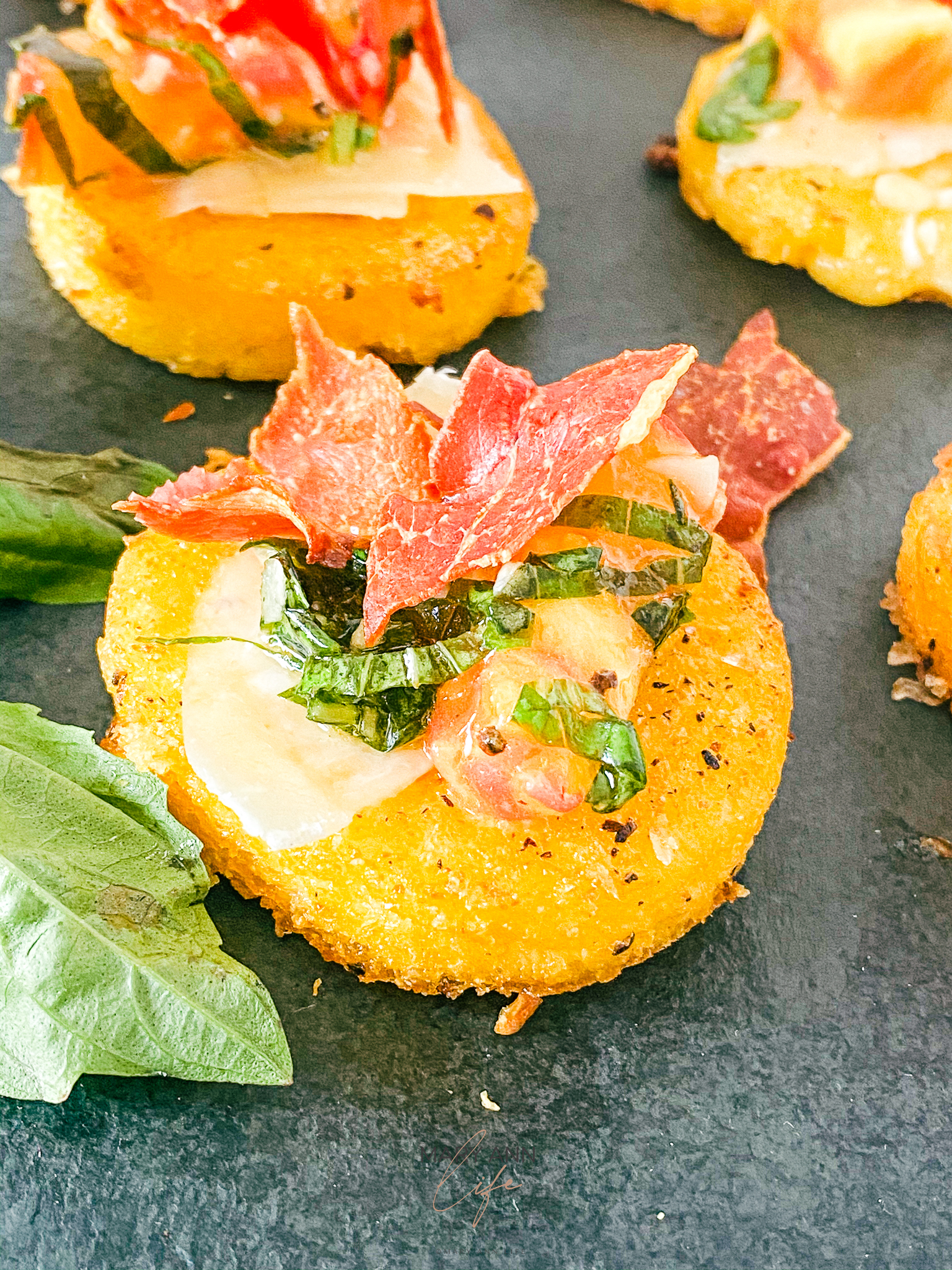I prefer my food without a side of guilt and shame.
I used to feel so drawn to food over the holidays. I specifically remember Christmas morning, it would feel impossible for me to not eat all of the chocolate and cookies that I would be given in one sitting.
Even though I really hated the way it made me feel during and after, every time there was delicious food in front of me over the holidays, I felt just so drawn to it. Like I had to eat it now, and eat a lot of it.
Then I would spend the New Year feeling like I had to start all over because I overdid it so much that I felt just like crap by the time January came around. And I really don’t feel like that anymore. I enjoy the food over the holidays, but I genuinely feel really in control and at peace with it without having to force it without having to try.
In this episode of the Really Personal Podcast, I want to share with you some of the most impactful changes that I’ve made over the years because it’s not an overnight process that has helped me get to this point where I just have a really balanced and effortless relationship with food.
Want to know how to have a healthy relationship with food? Balance is key! Before diving into forming a healthy mindset,
- Stop labeling foods as good or bad.
- Listen and respect your body’s natural hunger cues.
- Don’t restrict foods: balance is key.
- Don’t punish your body for eating.
One of the coolest things about the nutrition by addition framework is that you don’t have to give up any of the foods you love. You can add to the foods that you enjoy to make them more filling and satisfying and to support your health goal.
- If you love cinnamon buns or donuts in the morning, serve them with some scrambled eggs and berries.
- If love enjoying a cookie with your afternoon snack, have some greek yogurt on the side.
- If you’re a huge baked brie or love grazing the cheeseboard as much as me, fill up your plate with lots of veggies too

The goal here is not to overhaul your life overnight. The goal here is to create new habits for yourself so that you can actually stop starting over. And the key to that is going to be slow and takes one step at a time. Wait until you’ve mastered each little new habit before you move on to the next one.
Master Your Mindset With Food
#1: Journaling
Want to master your mindset: this is going to involve journaling! Life Journals and Prompts and Self-Care Planners are the perfect way to jump-start your writing meditation practices and approach each day with intentions and gratitude. The Planners include space to plan and record meals, habits, sleep, mood, water intake, exercise, and much more.
Write down patterns that you’re trying to break, and mindsets that you’re trying to break free from that have held you back in the past.
Once you better understand your patterns, your mindset, and the habits that have been holding you back, it’s going to become a lot easier to understand how you specifically need to move forward and what you need to focus on.
Take a second to write down how you are going to measure and define progress. It’s OK if you want to use the scale- I personally don’t rely solely on the scale. I really believe that if you are only focusing on the scale, it’s going just to be a matter of time tie until your motivation and your willpower goes away because it’s not a strong enough marker of progress on its own.
#2: Balanced Nutrition
Once you do this, then you can move on to mastering balanced nutrition. The key here is eating at a semi-consistent schedule so that you are always feeling stable and in control of food.
You want to eat consistently balanced snacks, and the key here is balancing satisfaction and fullness so that you feel physically full between meals, you’re lasting a really long time, you feel energized but also enjoy what you’re eating so that you’re not having as intense cravings and you’re not feeling restricted.
And of course, you want to hydrate too!
#3: Meal Planning
If you feel like you really understand balance and consistent eating, now is the time to better implement it into your life, and the key here is to master meal planning. This doesn’t have to mean really difficult meal prep, it doesn’t have to mean eating the same thing 5 days a week.
It’s super important to make an easy system for you to plan and implement easy, healthy meals for yourself. And it’s going to look a little bit different for everybody.
The key here is being really realistic with what type of system is going to be implementable for you in the long term- something that’s going to be really sustainable and doable.
#4: Mindful of food
Learn and honor your hunger and fullness cues. Be more present with your meals and snacks. This leads us to conquer emotional eating, learning what your triggers are for emotional eating. Whether that be a person, an environment, or a specific food. Build your emotional eating tool kit so you have other strategies to cope with these tough emotions where you don’t have to turn to food.
#5: Mindful of Eating
Be present when eating. We eat with our senses: what colors are on the plate? Textures? What can we see? What can we smell? What can we touch?
Before tasting the food, pause and take a couple of deep breaths: you want to encourage your body to be in its parasympathetic nervous system, which is the “rest and digest” so that when you’re eating the food it’s digesting at the right pace and your nutrients are being broken down properly and going to the right places.
Show gratitude for the food: Give thanks for the food (prayer or for those who pulled the food out of the ground, brought them to the store, allowed me to go, to afford the food to make and serve.
Chew properly: getting enough chews in and putting your fork down in between bites so that your body can have enough time to respond to its hunger cues. Ideally, that leaves you satiated and you’re able to turn off the rest of your day and just be able to enjoy a meal
#6: Movements
Choose movements that both challenges you but that you like enough that you’re actually gonna keep up with it. I personally adhere to weight training and post-cardio with weekend trail walks. And it took some trial and error to not only see movements that altered my body but also gave me the confidence and excitement to continue, even when I travel!
A healthy relationship with food should feel easy. A healthy relationship with food will feel pretty stable and consistent. There will be no jumping from diet to diet or intermittently trying new restrictions. You might care about the nutrient value or even calories, but you know that there’s so much more to food than just that.
You will have the confidence to make the food decisions that work best for you. Healthy relationship with food means eating when you need to and stopping when you want to, not having guilt or shame associated with your eating, and being flexible to eat in different food environments without stress.
A healthy relationship with food should feel easy, and if you don’t have it YET, know that it is absolutely possible for you!
Food Recommendation: Visit Mary Ann Life’s Food + Cocktails







+ show Comments
- Hide Comments
add a comment